Initiatives to provide clean and affordable energy, such as 'Lighting a Billion Lives©' (LaBL), are not only helping electrify rural areas but also contributing to the entrepreneurial journey of the village youth.
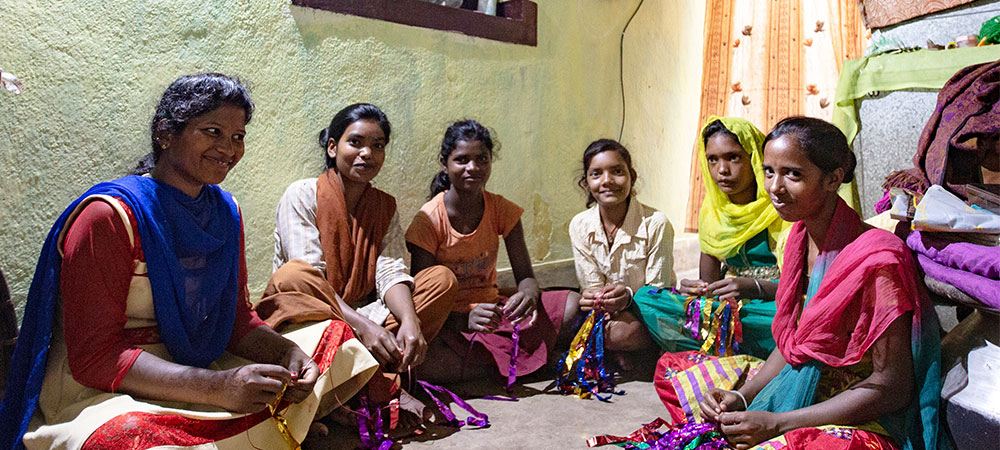
"Shaam mein surya dhalne ke baad, light cut jaata hai. Tab solar se ghar ka kaam, padhai-likhai, samooh ka kaam sab ussi light se karte hain. Bijli wali light 8 baje ke baad aati hai toh humein solar se zyaada suvidha hai." ("Post sunset, there is generally a power outage in our village. It is during that time that we use the solar powered lights for household work, studying and our group's work. As there is a power cut till 8pm on most days, we find the solar powered lights to be very useful.")
Manisha Tigga, 20, hails from the Gutwatoli village of Ranchi district in Jharkhand. At first glance, she comes across as an ordinary Indian village girl who balances her time between studies and household work but look closer and another aspect will be apparent - one that makes her stand out from the crowd.
Manisha is an entrepreneur, and a very successful one at that.
She heads 'Jyoti Kishori Samooh', a self-help group which comprises other like minded young women from her village. Designing and handcrafting jewellery from raw materials like fabric, artificial pearls and brass pendants procured from the city, these girls have been successful in not only earning a livelihood and sharing the economic burden of their household, but also in creating a unique identity for themselves. With an average recurring investment of Rs.1500 at a time, the members of Jyoti Kishori Samooh manage to earn approximately the same amount as profit.
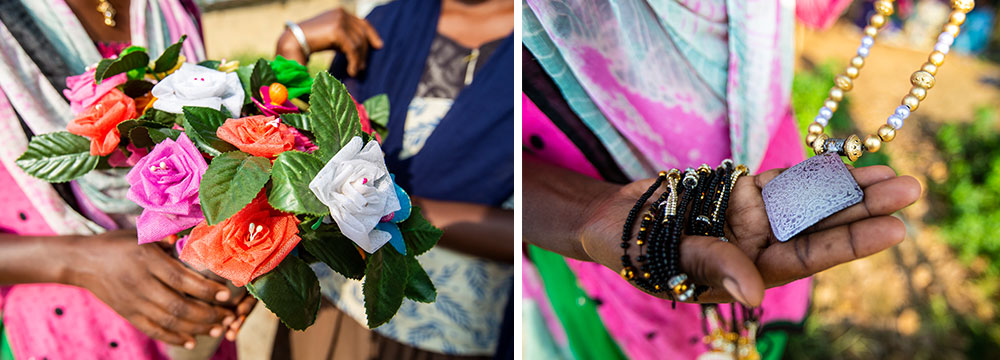
Come any festival, the women of the village flock to the houses of these girls to buy earrings, pendants and necklaces for themselves and also purchase home décor items to ready their houses for festivities.
But when do these girls get the time to make these items?
The members of Jyoti Kishori Samooh spend most of their day in a mix of activities ranging from studying to helping around the house to completing outdoor tasks like collecting firewood and procuring water. It is during the evenings that they finally get time to themselves, but by then their village is usually covered in darkness.
Although mostly electrified, Gutwatoli, like many other villages of the district, suffers from frequent and long power outages, especially in the evening.
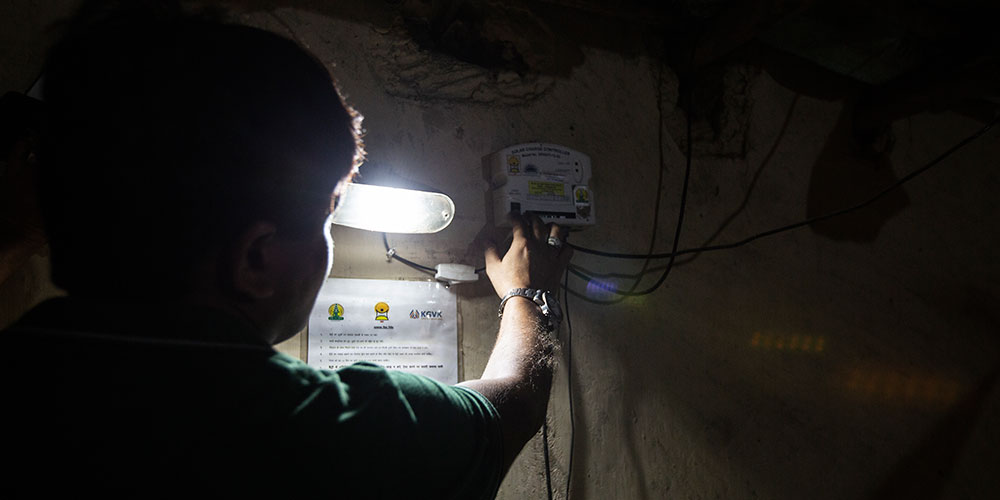
But for Manisha, power outages are no longer a reason for life, studies or business to hit pause. Her house is one of the 19 houses in Gutwatoli that have installed TERI's 'Integrated Domestic Energy Systems' (IDES) comprising of two LED light bulbs, one mobile charging unit and a choolah (cook stove) - all powered by solar energy.
Hence, not only do the beneficiaries get uninterrupted power supply but also the forced draft improved biomass cook stove. It has been found to emit 60% less smoke and hence significantly reduces the health risk faced by women who earlier would waste away their lungs in front of a traditional choolah.
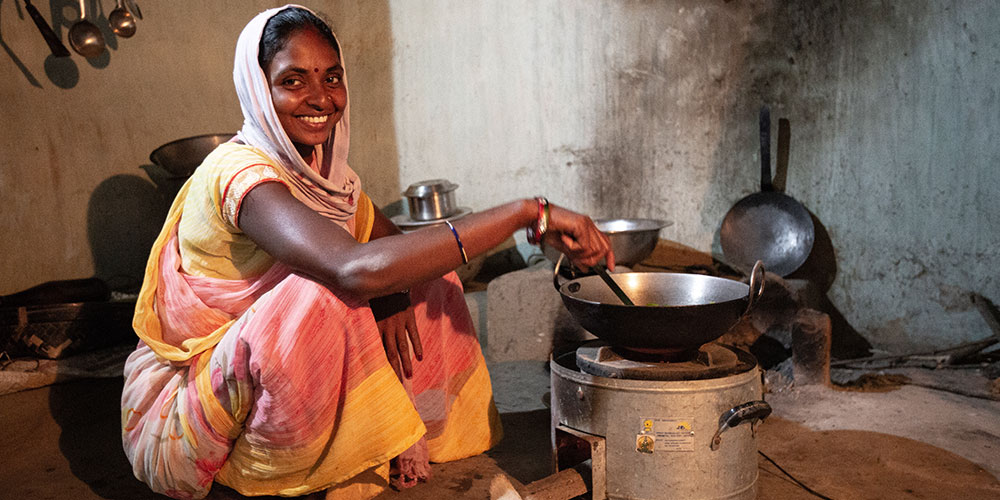
In addition, these cost effective choolahs have drastically reduced the use of kerosene oil in these households. With kerosene costing nearly Rs. 50 per litre and the general consumption being around two litres a week, the savings are significant.
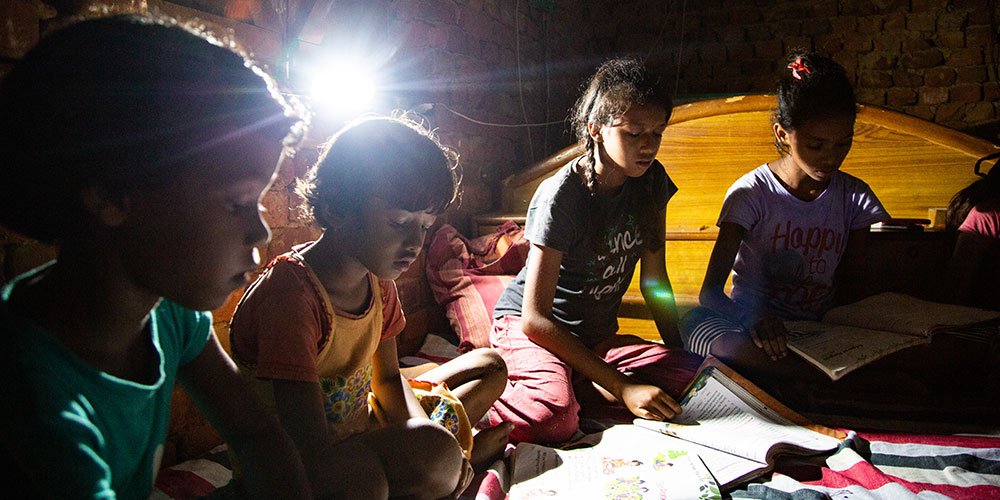
For the children of these households, who used to study under the fading light of kerosene lamps or the short-life rechargeable lamps, the IDES' LED bulbs have come as a boon. They are now able to study late into the night without it becoming a financial burden on their families, and do better at school.
The provision of IDES in rural households in Ranchi is a part of TERI's 'Lighting a Billion Lives©' (LaBL) campaign - a global initiative to help poor communities transition from traditional and inefficient energy sources to modern, clean and sustainable energy ones.
"This project seeks to fulfil the basic energy needs of the poorest of the poor communities who are unable to afford the high recurring cost of modern energy such as electricity and LPG. It aims for the betterment of their health, education, and livelihood," says Manish Kumar Pandey, project in-charge for TERI.
The Agriculture Insurance Company of India Limited (AIC), under its corporate social responsibility, is supporting this campaign in Manisha's village, among others, and covers 60% of the total cost of IDES while the remaining 40% is sourced by the beneficiaries themselves.
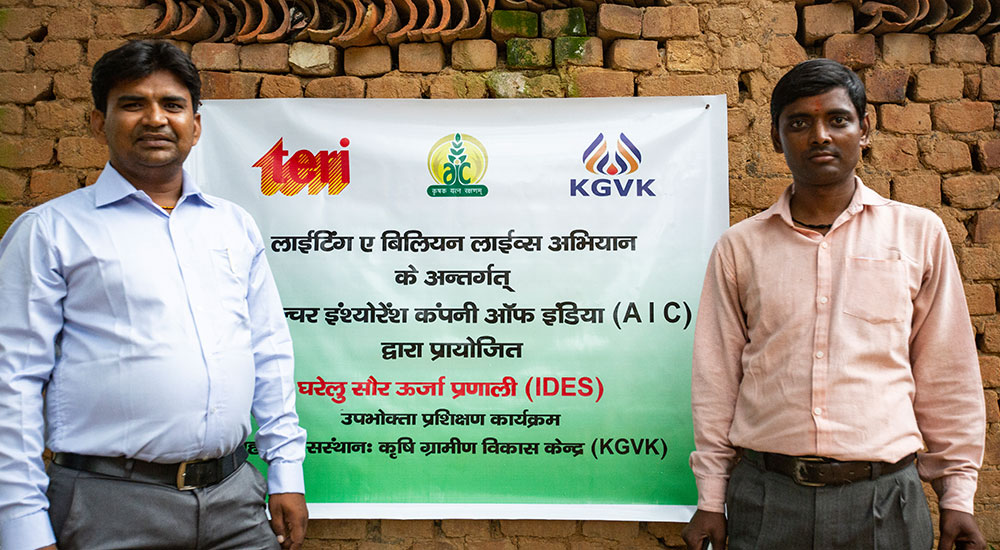
In partnership with AIC and Krishi Gram Vikas Kendra (KGVK), TERI is not only helping families like Manisha's access clean and sustainable energy at a fraction of the cost, but also contributing in their journey to become self-reliant entrepreneurs.

